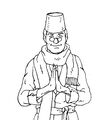Template:Selected anniversaries/May 20: Difference between revisions
No edit summary |
No edit summary |
||
| Line 7: | Line 7: | ||
||1570 – Cartographer Abraham Ortelius issues Theatrum Orbis Terrarum, the first modern atlas. | ||1570 – Cartographer Abraham Ortelius issues Theatrum Orbis Terrarum, the first modern atlas. | ||
||1772 – Sir William Congreve, 2nd Baronet, English inventor and politician, developed Congreve rockets (d. 1828) | ||1772 – Sir William Congreve, 2nd Baronet, English inventor and politician, developed Congreve rockets (d. 1828) | ||
| Line 21: | Line 17: | ||
||Johan Afzelius (d. 20 May 1837 in Uppsala) was a Swedish chemist and notable as the doctoral advisor of one of the founders of modern chemistry, Jöns Jacob Berzelius. He was the brother of botanist Adam Afzelius and physician Pehr von Afzelius. | ||Johan Afzelius (d. 20 May 1837 in Uppsala) was a Swedish chemist and notable as the doctoral advisor of one of the founders of modern chemistry, Jöns Jacob Berzelius. He was the brother of botanist Adam Afzelius and physician Pehr von Afzelius. | ||
||Edouard Sarasin (b. 20 May 1843) was an independent scientist in Geneva. Born in a wealthy family, he established a private laboratory where he collaborated with other researchers. His studies included those on the properties of waves, resonance, radiowaves, radiation and geophysics. | |||
||Emile Berliner (b. May 20, 1851), originally Emil Berliner, was a German-born American inventor. He is best known for inventing the flat disc phonograph record (called a gramophone record in British English and originally also in American English) and the Gramophone. | ||Emile Berliner (b. May 20, 1851), originally Emil Berliner, was a German-born American inventor. He is best known for inventing the flat disc phonograph record (called a gramophone record in British English and originally also in American English) and the Gramophone. | ||
||1860 – Eduard Buchner, German chemist, zymologist, and academic, Nobel Prize laureate (d. 1917) | |||
||Friedrich Moritz Hartogs (b. 20 May 1874) was a German-Jewish mathematician, known for his work on set theory and foundational results on several complex variables. Pic. | |||
||1879 – Hans Meerwein, German chemist (d. 1965) | ||1879 – Hans Meerwein, German chemist (d. 1965) | ||
Revision as of 10:37, 8 April 2018
1806: Economist, civil servant, and philosopher John Stuart Mill born. He will be one of the most influential thinkers in the history of liberalism, and the first Member of Parliament to call for women's suffrage.
1887: Famed gem detective and crystallographer Niles Cartouchian uses Schumann resonances to communicate with fellow crime-fighter Nikola Tesla.
1888: Physicist Winfried Otto Schumann born. He will predict the existence of Schumann resonances, a series of low-frequency resonances caused by lightning discharges in the atmosphere.
1889: Electrical engineer Nikola Tesla radio technology to intercept communications between math criminals, providing information which will lead to the capture of Baron Zersetzung.
1891: History of cinema: The first public display of Thomas Edison's prototype kinetoscope.
1932: Amelia Earhart takes off from Newfoundland to begin the world's first solo nonstop flight across the Atlantic Ocean by a female pilot, landing in Ireland the next day.
1946: Logician, mathematician, and crime-fighter Ernst Friedrich Ferdinand Zermelo uses the well-ordering theorem to detect and prevent crimes against mathematical constants.







